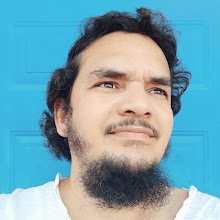Former prime minister Basdeo Panday left us on January 1st 2024 and there has been an outpouring of love. There are people asking and suggesting ways to honor his legacy. I saw someone suggest we rename the highway the Panday and Manning highway in a show that will unite the country. Some think the airport should be named after him. Others think he should surely be awarded the Order of the Republic of Trinidad and Tobago. In an interview, his daughter Mickela suggested that her father strongly believed in the need for constitutional reform and would have wanted to be honored in that way.
What is constitutional reform? I asked my friend Bard this question and this was his reply, "Constitutional reform refers to the process of reviewing and potentially amending the country's supreme law, the Constitution of the Republic of Trinidad and Tobago, which came into effect in 1976. This process aims to adapt the Constitution to the changing needs and circumstances of the nation and its people." Bard points out that some areas of focus are governance (the structure of government, the electoral system, or the powers and responsibilities of various branches), judiciary (strengthening the independence and efficiency), fundamental rights and freedoms (expanding or clarifying existing rights, or addressing newer issues like environmental rights or digital privacy) and Tobago autonomy.
When we think of constitutional reform we should think that citizens are in control of the government and not the other way around. We want to move away from the politics of divide and rule. Changing the constitution will require a government with special majorities or agreement from government and opposition in the parliament. Some features of reform that we have heard about are an elected president, proportional representation, referendums, fixed election dates, term limits, and right to recall. When I think of reform I think about what rights and freedoms should be explicitly spelled out in the constitution, Tobago self government, local government reform and making the Caribbean Court of Justice our highest court.
I browsed through the 2013 Constitutional Reform Commission report and at the end of the report was the website reformtheconstitution.com and it is a pity that this website was not kept alive for our records. You can view the website somewhat through the internet wayback machine. I think it is safe to say that by the time another government decides to pursue constitutional reform we will need another set of consultations with up to date thinking on the matter. We should not wait for the politics to decide when we get reform, we can start demanding it now.
How can I as a citizen have more of a say? How do we ensure that minority voices are not drowned out by the majority at that time? How can I get my emails sent to government bodies answered? How can I be encouraged to take part in making the country better? These are some of my questions on the topic. My fear is that people (myself included) are not encouraged to think for themselves in deciding what constitutional reform means to them and what we want it to be and are mostly swayed by the leading voices and their agendas. For example, how can we move away from a place where the political leaders and their mouthpieces decide for us our views on matters and we feel obligated to tow the political line which is currently heavily based on a racial divide. I think constitutional reform would have been achieved when we have our own voices and can think for ourselves and be free of biases. We have to free ourselves from the bondages of our colonial past.

Comments